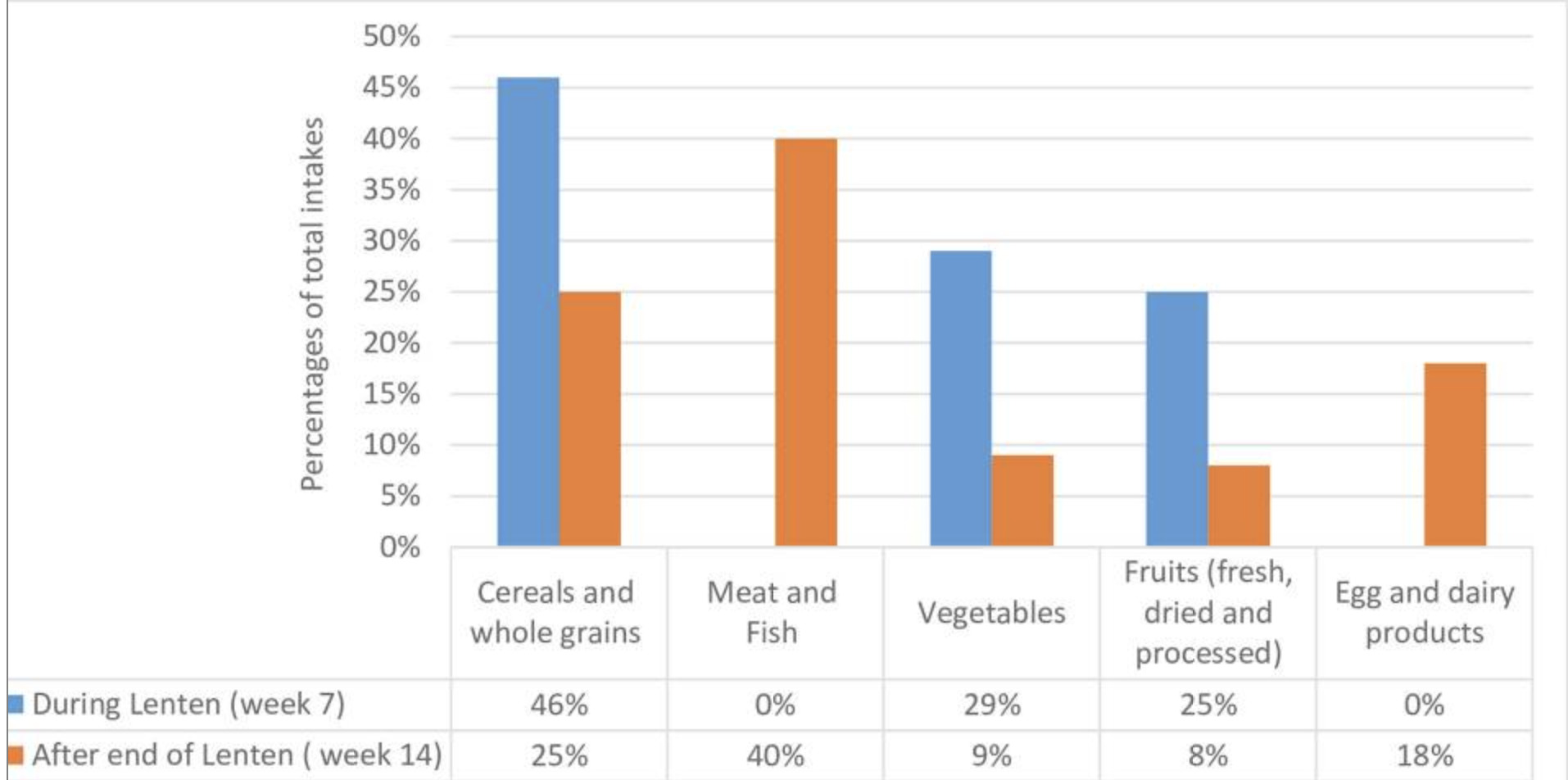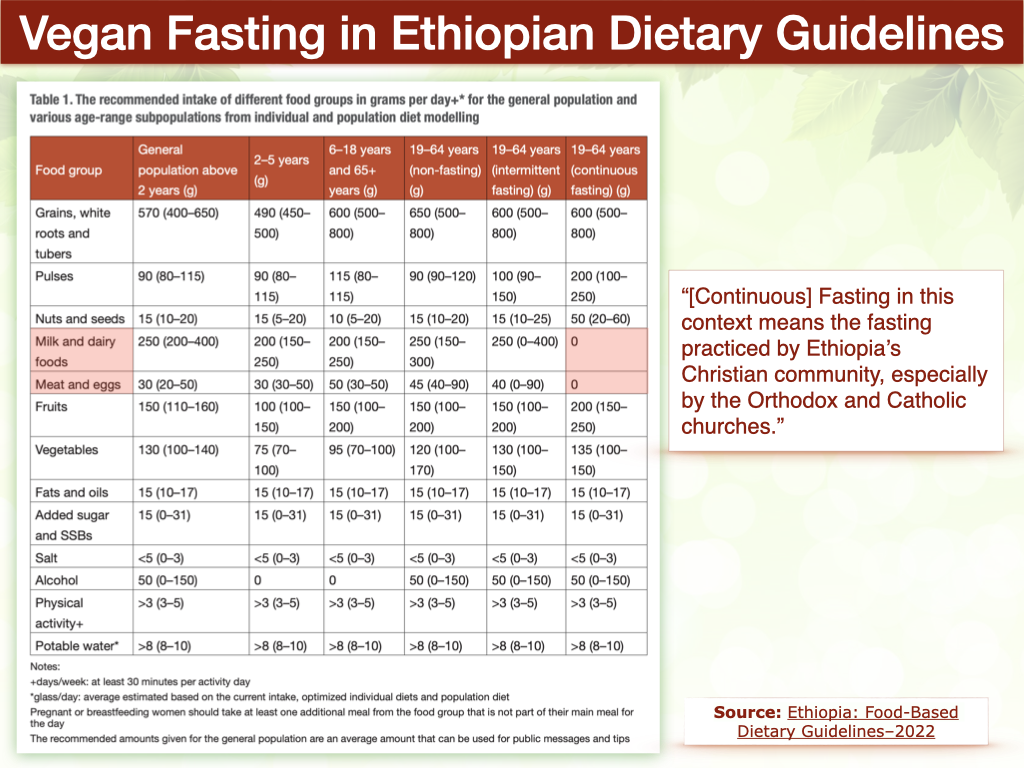19 Jan 2023
The Ethiopian Orthodox Church adopts a vegan diet with simple, unprocessed foods for a surprisingly large number of days in an year.
Excerpts from this article: A 40-Day Vegan Fast, Then, At Last, A January Christmas Feast (2015; NPR):
Research Papers
- (2019) Body Composition Changes Following Lenten fasting: A Study in Ethiopia by Tariku Sisay, Getahun Chala, Yonas Teshome, Chala Kenenisa Edae, J Nutrition Fasting and Health.
-
(2020) Changes in biochemical parameters by gender and time: Effect of short-term vegan diet adherence by Tariku Sisay, Tesfaye Tolessa, Wondyefraw Mekonen, PLoS One. 2020; 15(8).
Excerpts from the above paper:
What do they eat during the 180 days of dietary fasting (every Wed & Fri and during the entire length of 56 days of Lent)? Traditional Ethiopian vegan preparations without processed foods:
During non-Lent days, 40% calories were meat & fish, 18% were dairy, 25% were cereals and whole grains, 9% were veggies, 8% fruits. During Lent days, they had zero meat & fish, zero dairy, 46% whole grains, 29% veggies and 25% fruits.
They studied the effects of 56-days of veganism (without processed foods) during Lent. Myriad health markers improved but when they reverted to their original diet after Lent was over, their markers started becoming worse.
Books
Book: (2020) Unnoticed Wisdom of Ancient Civilizations: Ethiopian's Genius Eating Pattern by Dara Babatunde.
Dietary Guidelines by Govt of Ethiopia
(2021) Dietary guidelines by Govt of Ethiopia endorse 100% vegan food plates for those who are doing "continuous fasting":
How old is Ethiopian Orthodox Church? The Wikipedia article explains:
Excerpts from Fasting and abstinence in the Ethiopian Orthodox Tewahedo Church (Wikipedia):
Thus we have a tradition of veganism (with simple food plates from unprocessed plant foods) for hundreds of days annually going back at least 1,700 years in Ethiopia! I wonder if some percentage (maybe 0.1% of this population) adopted fasting for the entire year? I wonder if anybody has studied this population group just like we have studied the Seventh Day Adventists via so many Adventist Health Studies in detail.
Videos
(17 mins, 2019) What Is Orthodox Fasting?
Nice video in which he explains his personal philosophy for orthodox fasting.
(6 mins) An oil-free Ethiopian-style dish (oil-free)
(14 mins) Ethiopian Fasting Food (Shimbra Firfir)
© Copyright 2008—2025, Gurmeet Manku.

 Instagram
Instagram YouTube
YouTube
